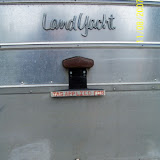In my opinion, the vitriol of the healthcare debate is all ideology and political money all around. Republicans in the pockets of the healthcare industry which includes insurance companies and hospital corporations (Goliath); Democrats in the pockets of the poor and under-represented, the same people Republicans want to make the whipping boy of any progress in social justice (David). (Apologies for an expedient eisegesis.)
The abortion scare is a perfect example. The abortion argument is, in disguise, a ploy based on elitism, spread abroad to repeat the fear-mongering of the Philistines, to bring the Israelites into submission, to enslave them and keep them poor.
The abortion scare is a language game, propaganda generated for the same reasons the Republicans always pile responsibility on the backs of the poor and persons of color who are marginalized by each and every Republican "cause" on the present platform. Ever since HIV appeared in the 1980s, a prime case study, Republicans have forced the health care system into its typical posture: suspicion of and scapegoating of the poor and persons of color. Poverty; public education; civic development -- the same coded language and inaction kill millions of faceless people.
The Tea Party members and even a (probably Republican) member of the house played their hand: race and phobia of the poor couched in the fear language designed to dupe well-meaning good people. I appeal to the example of Jesus: the poor were his #1 concern, not the political and fiscal hegemony "scare" of the Pharisees. The Republicans will have to figure out another strategy. Their "tell" in the past weekend has blown their cover.
Meanwhile, David has emerged from the unwashed masses with his sling and five smooth stones. He managed to bring the monster down, maybe not with the first shot, but he's down -- down.
Democrats, my David trope, likewise, have another monster on the way: the challenge to lead toward the implementation of what could be the most monumental step of progress in this century (spoken by one who will most likely only see the first 1/3 or so of it, actuarially speaking). David -- keep your eye on the monster.
Nota bene: These arguments are so divisive because they are designed to hit us where we feel rather than where we think. The abortion argument is an argument of the amygdala, not the hippocampus. Or is it the other way around? The emotional hit in the gut by the abortion argument is meant to bypass the brain and go straight to the ballot box and the checkbook. Don't fall for it!
*I'm in a debate on Facebook with a man I first met when he was a seminarian. Now he's a minister, and I think he's a wonderful person.
Image is from http://www.biblepicturegallery.com/free/screen-sized%20pictures.htm
Democrats, my David trope, likewise, have another monster on the way: the challenge to lead toward the implementation of what could be the most monumental step of progress in this century (spoken by one who will most likely only see the first 1/3 or so of it, actuarially speaking). David -- keep your eye on the monster.
Nota bene: These arguments are so divisive because they are designed to hit us where we feel rather than where we think. The abortion argument is an argument of the amygdala, not the hippocampus. Or is it the other way around? The emotional hit in the gut by the abortion argument is meant to bypass the brain and go straight to the ballot box and the checkbook. Don't fall for it!
*I'm in a debate on Facebook with a man I first met when he was a seminarian. Now he's a minister, and I think he's a wonderful person.
Image is from http://www.biblepicturegallery.com/free/screen-sized%20pictures.htm








